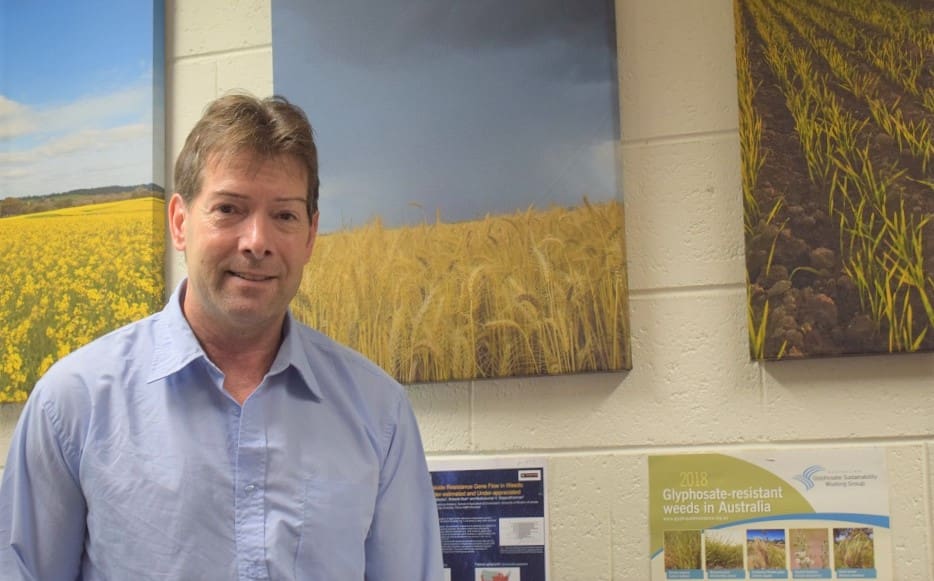
Professor Hugh Beckie
WHAT is the future of the widely-used knockdown herbicide, glyphosate? Can the rising incidence of weed resistance to the chemical be managed? How will Australian farming cope if the product ultimately ends up being withdrawn or banned?
These are questions that exercise the minds of Australia’s agricultural scientists, including University of Western Australia-based Australian Herbicide Resistance Initiative (AHRI) director, Professor Hugh Beckie.
Professor Beckie said there were many uncertainties surrounding the future of glyphosate as the herbicide came under increasing challenge throughout the world.
“Glyphosate has been in the news the last few years. Some of the European countries such as Germany, France and Austria plan to ban or severely restrict the herbicide’s use starting in 2022,” he said.
“However, things may change between now and then. For example, Thailand had planned to ban it, then reversed their decision quickly.
“Of course, there have also been court cases in the United States that have gone in the plaintiffs’ favour. And there are class action law suits, not only in North America, but also in Australia. We will just have to see how it all plays out.”
Professor Beckie said there was a high level of public interest and confusion over the use of glyphosate.
“I think the average person in Australia doesn’t know what to think – the experts say it is a safe herbicide when used as applied. Its toxicological profile is certainly a lot more favourable than a lot of other products,” he said.
“But again, a lot of this is in the political realm, especially in the European Union, and you never know what is going to happen in terms of how that might impact grain trade or if it will spill over from Europe into the Americas or Australia.”
Professor Beckie said glyphosate was agriculture’s most important and effective herbicide, and was the cornerstone of no-till farming.
However, rising levels of weed resistance to the herbicide in Australia was a cause for concern.
“There are now 19 different weeds with glyphosate resistance, the most recent being wild oats in New South Wales and Queensland,” he said.
He said one positive from a survey five years ago was that the rate of resistance development in ryegrass was relatively slow, with only 8 per cent of the ryegrass populations surveyed having confirmed glyphosate resistance.
“That’s why the 2020 survey will be interesting to see whether it has jumped from 8pc in 2015 to double that, or is it still a slow resistance,” he said.
“That is the only weed in WA where we found glyphosate resistance. It will be interesting to see if WA is picking it up in other weeds.”
Grain Central: Get our free daily cropping news straight to your inbox – Click here

It will be goodbye to grain farming in Australia if glyphosate is banned. Especially to the WA grain belt. No sheep now just wall to wall crops.